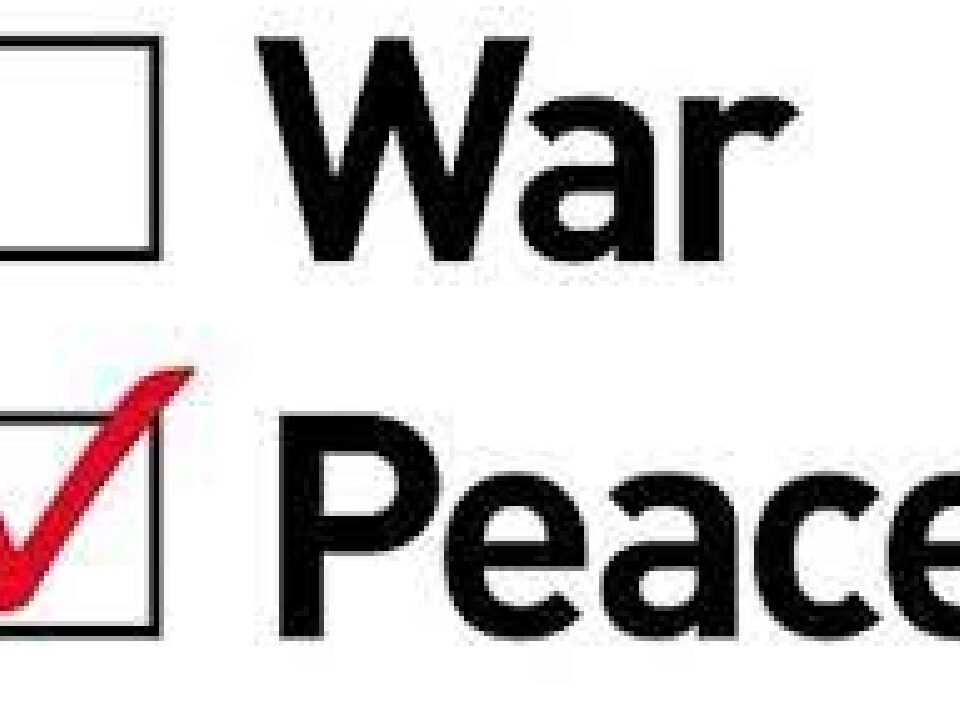by Etienne Curnow, France
Here’s a rough outline of my attempt to get to the heart of what Jesus expects of us all in terms of being non-violent.
1. Peaceable Christian Conduct. Is it acceptable to resort to violence in self-defense?Jesus’ teaching says no (Matt 5:39).
Jesus’ example says no (1 Pet 2:23).
Failure to comply carries its own perfectly proportioned punishment (Matt 26:52).
The ultimate death penalty awaits all who make themselves enemies of Jesus by refusing to abide by his non-violent code of conduct (Luke 19:27).
To save one’s life in this way is to lose out on immortality (Luke 9:24).
Is it permissible to defend another with violence?
When Peter sought to assist his Master in this way he discovered that this, too, is out of the question (John 18:10; Matt 26:51-52).
Are there any exceptional circumstances where violent resistance is allowed?
Peter states the general principle that we are not to repay evil for evil (1 Pet. 3:9).
Paul indicates that this principle applies in our dealings with absolutely everybody (Rom. 12:17)
So non-violence is a normative rule binding in all cases.
What can we do then?
How about mobilizing some spiritual weaponry? Prayer is not the only thing to do, but it should have a high profile in our response. Jesus often found himself facing such situations and he habitually committed them to the Father (1 Pet. 2:23). Only the fact that he had a mission to accomplish kept him from calling for divine assistance when the evil authorities came to arrest him (Matt. 26:53-54). An audible prayer would be extremely frightening to any assailant who happens to be a Satanist. That’s just one possible example of being creative, and looking for ways to turn the situation upside down and overcome the aggressor peaceably with good.
2. Violent Law Enforcement
The kingdoms of the world have a law enforcement function which can sometimes necessitate the use of violence (Rom. 13:4).
Our future role as kingdom of God citizens will be to exercise such authority justly in the millennial kingdom, where violence will be called for to subdue residual opposition to the Messiah. Is it appropriate for us to be jumping the gun now in order to participate in enforcing the laws of a worldly kingdom to which, as aliens and kingdom of heaven citizens (Phil 3:20), we do not even belong?
Some of the laws enacted by worldly kingdoms are unjust. Why enter a profession which would oblige us to uphold such laws? This could only result in compromise or refusal to perform one’s duty to the state. The former option would displease God and neither option would be a praiseworthy Christian witness. So let the kingdoms of the world police their own, and let us be policed by Jesus until he returns to make us his law enforcement officers in the millennial kingdom.
3. Military Involvement
Christians are not to use physical violence to repel attacks on Jesus’ kingdom (John 18:36). How, then, can it possibly be acceptable to fight for any other kingdom? This amounts to fighting for a rival kingdom against the non-violent values of the kingdom to which we profess to belong. Does Jesus’ teaching all of a sudden become null and void on a battlefield?
As already noted, violence to defend others is forbidden by Jesus. So much for the notion of a “just war.”
Ultimately, all worldly kingdoms will have to make way for the Messianic kingdom (Rev. 11:15). In the meantime we owe those kingdoms obedience (insofar as they do not cut across Jesus’ values) but not our allegiance, especially not to their violent projects. We must decide whose side we are really on. We do not have dual nationality in this matter. Nor are we to act as duplicitous double agents.
Conclusion
Paul reminds us that we are non-violent combatants in a spiritual conflict (Eph. 6:12).
Jesus was a non-violent extremist in this present evil age. Are we prepared to step that far out in order to follow his lead? Are we willing to put aside all carnal weapons and stratagems in order to do battle spiritually as inoffensive lambs in constant danger of being slaughtered (Rom. 8:36)? Or are we violently opposed to the idea?




